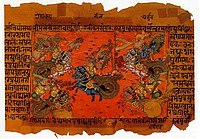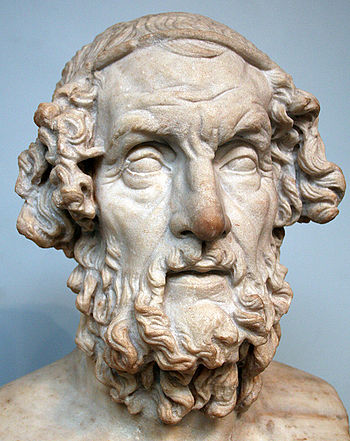Welcome to the Poetry Portal


Poetry (from the Greek word poiesis, "making") is a form of literary art that uses aesthetic and often rhythmic qualities of language to evoke meanings in addition to, or in place of, literal or surface-level meanings. Any particular instance of poetry is called a poem and is written by a poet. Poets use a variety of techniques called poetic devices, such as assonance, alliteration, euphony and cacophony, onomatopoeia, rhythm (via metre), and sound symbolism, to produce musical or other artistic effects. Most written poems are formatted in verse: a series or stack of lines on a page, which follow a rhythmic or other deliberate structure. For this reason, verse has also become a synonym (a metonym) for poetry.
Poetry has a long and varied history, evolving differentially across the globe. It dates back at least to prehistoric times with hunting poetry in Africa and to panegyric and elegiac court poetry of the empires of the Nile, Niger, and Volta River valleys. Some of the earliest written poetry in Africa occurs among the Pyramid Texts written during the 25th century BCE. The earliest surviving Western Asian epic poem, the Epic of Gilgamesh, was written in the Sumerian language.
Early poems in the Eurasian continent evolved from folk songs such as the Chinese Shijing as well as from religious hymns (the Sanskrit Rigveda, the Zoroastrian Gathas, the Hurrian songs, and the Hebrew Psalms); or from a need to retell oral epics, as with the Egyptian Story of Sinuhe, Indian epic poetry, and the Homeric epics, the Iliad and the Odyssey. (Full article...)
Selected article

Besides its epic narrative of the Kurukshetra War and the fates of the Kaurava and the Pandava princes, the Mahabharata contains philosophical and devotional material, such as a discussion of the four "goals of life" or purusharthas (12.161). Among the principal works and stories in the Mahabharata are the Bhagavad Gita, the story of Damayanti, an abbreviated version of the Ramayana, and the Rishyasringa, often considered as works in their own right.
Traditionally, the authorship of the Mahabharata is attributed to Vyasa. There have been many attempts to unravel its historical growth and compositional layers. The oldest preserved parts of the text are thought to be not much older than around 400 BCE, though the origins of the epic probably fall between the 8th and 9th centuries BCE. The text probably reached its final form by the early Gupta period (c. 4th century CE). The title may be translated as "the great tale of the Bhārata dynasty". According to the Mahabharata itself, the tale is extended from a shorter version of 24,000 verses called simply Bhārata.
The Mahabharata is the longest known epic poem and has been described as "the longest poem ever written". Its longest version consists of over 100,000 shloka or over 200,000 individual verse lines (each shloka is a couplet), and long prose passages. About 1.8 million words in total, the Mahabharata is roughly ten times the length of the Iliad and the Odyssey combined, or about four times the length of the Ramayana. W. J. Johnson has compared the importance of the Mahabharata to world civilization to that of the Bible, the works of Shakespeare, the works of Homer, Greek drama, or the Qur'an. (Full article...)
Selected image
Poetry WikiProject

Selected biography

Rabindranath Tagore (Bengali pronunciation: [rəˈbindrəˈnɑt ˈtɑɡɔr] ), also written Rabīndranātha Thākura (pronounced [rəˈbindrəˈnɑtə ˈtɑkʊrə]), (7 May 1861 – 7 August 1941), sobriquet Gurudev, was a Bengali polymath who reshaped Bengali literature and music in the late 19th and early 20th centuries. Author of Gitanjali and its "profoundly sensitive, fresh and beautiful verse", he became the first non-European to win the Nobel Prize in Literature in 1913. In translation his poetry was viewed as spiritual and mercurial; however, his "elegant prose and magical poetry" remain largely unknown outside Bengal. Tagore introduced new prose and verse forms and the use of colloquial language into Bengali literature, thereby freeing it from traditional models based on classical Sanskrit. He was highly influential in introducing the best of Indian culture to the West and vice versa, and he is generally regarded as the outstanding creative artist of the modern Indian subcontinent, being highly commemorated in India and Bangladesh, as well as in Sri Lanka, Nepal and Pakistan. (Full article...)
Did you know (auto-generated) -

- ... that Laura Ashe believes the Gawain Poet used the beheading game to criticize the emptiness of chivalry?
- ... that Adolphe Jacquies was arrested for publishing a poem?
- ... that Ashiq Peri was the first prominent female folk poet in Azerbaijan?
- ... that Manuel Carpio's 1849 poem is the earliest literary depiction of the weeping ghost La Llorona?
- ... that Polish Renaissance poet Jan Kochanowski – considered "the founding father of Polish literature" – wrote threnodies, the first Polish-language tragedy, and epigrams?
- ... that Peter Fallon, an Irish poet who translated Virgil's Georgics, also edited a 1970 beat-poetry magazine that featured works by John Lennon and Allen Ginsberg?
Selected poem
| The Sick Muse / La Muse malade by Charles Baudelaire |
|---|
|
Poor Muse, alas, what ails thee, then, today? |
Related portals
Topics
Recognized content
Categories
Associated Wikimedia
The following Wikimedia Foundation sister projects provide more on this subject:
-
Commons
Free media repository -
Wikibooks
Free textbooks and manuals -
Wikidata
Free knowledge base -
Wikinews
Free-content news -
Wikiquote
Collection of quotations -
Wikisource
Free-content library -
Wikiversity
Free learning tools -
Wiktionary
Dictionary and thesaurus





















